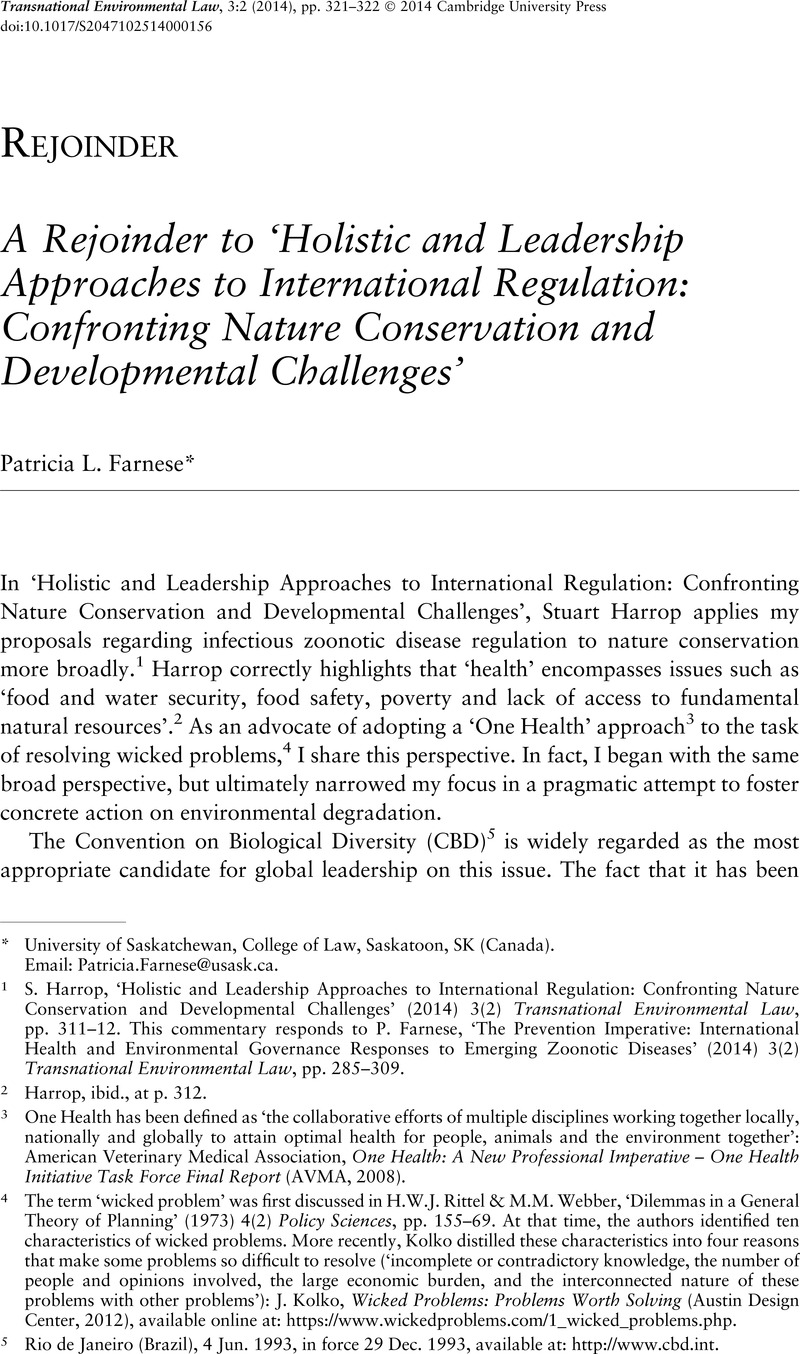No CrossRef data available.
Published online by Cambridge University Press: 02 October 2014

1 Harrop, S., ‘Holistic and Leadership Approaches to International Regulation: Confronting Nature Conservation and Developmental Challenges’ (2014) 3(2) Transnational Environmental Law, pp. 311–12.Google Scholar This commentary responds to Farnese, P., ‘The Prevention Imperative: International Health and Environmental Governance Responses to Emerging Zoonotic Diseases’ (2014) 3(2) Transnational Environmental Law, pp. 285–309.CrossRefGoogle Scholar
2 Harrop, ibid., at p. 312.
3 One Health has been defined as ‘the collaborative efforts of multiple disciplines working together locally, nationally and globally to attain optimal health for people, animals and the environment together’: American Veterinary Medical Association, One Health: A New Professional Imperative – One Health Initiative Task Force Final Report (AVMA, 2008).
4 The term ‘wicked problem’ was first discussed in Rittel, H.W.J. & Webber, M.M., ‘Dilemmas in a General Theory of Planning’ (1973) 4(2) Policy Sciences, pp. 155–69.Google Scholar At that time, the authors identified ten characteristics of wicked problems. More recently, Kolko distilled these characteristics into four reasons that make some problems so difficult to resolve (‘incomplete or contradictory knowledge, the number of people and opinions involved, the large economic burden, and the interconnected nature of these problems with other problems’): J. Kolko, Wicked Problems: Problems Worth Solving (Austin Design Center, 2012), available online at: https://www.wickedproblems.com/1_wicked_problems.php.
5 Rio de Janeiro (Brazil), 4 Jun. 1993, in force 29 Dec. 1993, available at: http://www.cbd.int.
6 I use this term from the loosely Kantian perspective that there are some fundamental, moral concepts that structure human behaviour.
7 Farnese, n. 1 above, at pp. 293–4.
8 Albeit anecdotal, the following personal experiences are offered for consideration. In 1994, while living in a remote village in the Lampung province on the island of Sumatra in Indonesia, I assisted health workers as they shared information about the benefits of family planning and infant nutritional requirements with new mothers. In 2012, throughout the northern border regions of Cameroon, I observed a well-penetrated campaign linking hand washing with influenza control throughout this rural region. Similarly, I am confident that my children, despite my expertise in wetland protection, know much more about why they need to protect themselves from influenza than about the consequences of wetland degradation.